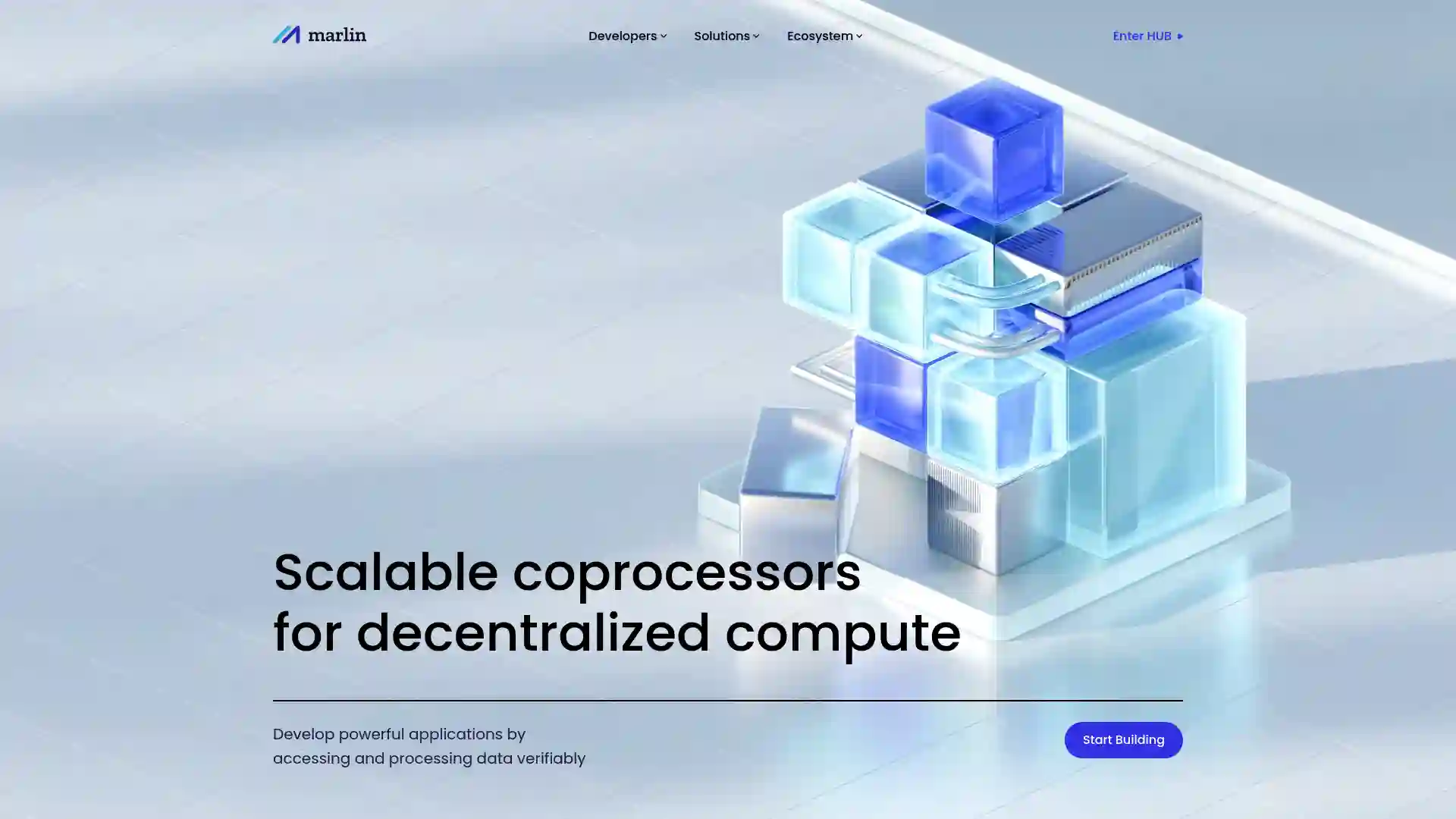Marlin (POND)
Marlin is a protocol designed for verifiable computing, utilizing Trusted Execution Environments (TEE) and Zero-Knowledge (ZK)-based coprocessors to distribute complex workloads across a decentralized cloud. It supports smart contract-based protocols, web or mobile clients, and enterprises in securely renting compute instances or deploying serverless functions over a global network of nodes. The protocol was founded by Siddhartha Dutta, Roshan Raghupathy, and Prateesh Goyal.
Overview
Marlin enables the delegation of computations through a relay contract, where network nodes execute tasks and return results with an enclave attestation or ZK proof to ensure correctness. This protocol enhances blockchain functionality by offloading computations while maintaining on-chain verification, offering seamless data access and relay, and abstracting chain complexities. The network includes varied hardware like Intel SGX-supported servers and GPUs with confidential computing capabilities, accessible via sub-networks each with unique features. These include Oyster Cloud for renting computing instances and Marlin Cloud for offering reputation-based instances.

| Ticker | POND |
| Category | Artificial Intelligence (AI) |
| Website | https://www.marlin.org/ |
| @marlinprotocol | |
| Telegram | marlinprotocol |
| https://www.reddit.com/r/marlinprotocol/ | |
| Contract Addresses | |
|---|---|
| ethereum | 0x57...6c Copied! Copied! |
| arbitrum-one | 0xda...dd Copied! Copied! |
Technology
Oyster
Oyster, a Marlin sub-network, provides TEE-based coprocessors for secure, efficient task execution. Users can rent instances or delegate tasks across node pools, paying for task execution time. Oyster nodes assure security with hardware isolation, providing high performance and cost-effectiveness compared to other cryptographic methods.
Kalypso
Kalypso serves as a marketplace for ZK proofs, optimizing cost and time for proof generation. It encourages innovation among hardware providers, allowing access to specialized hardware and software improvements. Kalypso operates as an orderbook-based market, linking users with proof generators and ensuring reliability through slashing-based guarantees. Its decentralized network supports competition, enhancing resource efficiency and reducing proof generation costs.
Marlin Cache
Marlin Cache is a distributed caching system for decentralized applications (Dapps), addressing frequent blockchain queries by maintaining a local cache. This system improves response times and reduces query costs by fulfilling a high volume of requests locally.
Marlin Tokens
In Marlin's ecosystem, two Ethereum-based tokens are used: POND and MegaPOND (MPond). Nodes in the network relay and cache data, requiring a stake of at least 0.5 MPond, in return for staking rewards and fees. MPond and POND can be delegated, with node operators sharing rewards with delegators. MPond holders participate in governance, influencing reward distribution and network initiatives.
Tokenomics
The supply of POND tokens is capped at 10 billion, limiting MegaPOND tokens to a maximum of 10,000. Token distribution includes allocations for the Marlin ecosystem, staking rewards, private sales, and team incentives.
FlowMint
FlowMint is designed to distribute tokens across blockchain communities, inspired by mechanisms like NuCypher WorkLock. It aims to encourage node operator engagement without token constraints.
Partnerships
SPACE ID
Marlin collaborated with SPACE ID to launch decentralized gateways for domain name services, enhancing Web 3's user-friendliness and security.
Injective Protocol
Marlin's partnership with Injective expanded its DeFi presence and introduced new derivative products linked to POND tokens, enhancing ecosystem utility.
Ankr
Ankr supported Marlin's node deployment with 1-click solutions, facilitating quick and cost-effective blockchain node setups across various locations.
StaFi
StaFi and Marlin worked together to integrate Layer-0 scaling and create liquid staking derivatives, enhancing staking options for POND token holders.
